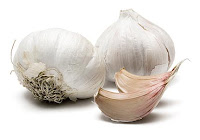
A new study from researchers at Bangor University in North Wales, UK suggests that keeping optimistic attitude on life and putting a brave face during adversities can ward off all kinds of illnesses.
According to psychologists, positive attitude can even overcome serious diseases like diabetes, arthritis and heart conditions. Previous studies have established that positive thinking can make the healing process of the body faster by easing the symptoms through placebos. Resilience can keep illnesses at bay.
The study, conducted on Britons, aged 50 to 90 years, found that resilient people are more likely to bounce back from the illnesses and feel better in spite of various aches and pains.
Dr Gill Windle, lead researcher at Bangor University, North Wales, stated that the inner strength required to fend off all illnesses takes years to develop and cannot be turned on overnight.
"Resilience is the key but it's probably something which builds up over a lifetime – in some cases because of experiences in childhood," the Daily Express quoted Windle as saying. “A positive attitude on life could help you to bounce back from the challenges of ill health,” Windle added.
According to psychologists, positive attitude can even overcome serious diseases like diabetes, arthritis and heart conditions. Previous studies have established that positive thinking can make the healing process of the body faster by easing the symptoms through placebos. Resilience can keep illnesses at bay.
The study, conducted on Britons, aged 50 to 90 years, found that resilient people are more likely to bounce back from the illnesses and feel better in spite of various aches and pains.
Dr Gill Windle, lead researcher at Bangor University, North Wales, stated that the inner strength required to fend off all illnesses takes years to develop and cannot be turned on overnight.
"Resilience is the key but it's probably something which builds up over a lifetime – in some cases because of experiences in childhood," the Daily Express quoted Windle as saying. “A positive attitude on life could help you to bounce back from the challenges of ill health,” Windle added.





























 Health benefits of tomato have been known to mankind since ages. Tomato is a rich source of antioxidants that have been proven to be effective against many forms of cancer.
Health benefits of tomato have been known to mankind since ages. Tomato is a rich source of antioxidants that have been proven to be effective against many forms of cancer. 










 A new study says that Walnuts can help you to fight stress and reduce blood pressure.
A new study says that Walnuts can help you to fight stress and reduce blood pressure.


 When you overdo it and down a day's calories in one sitting, your body's inflammatory processes go into overdrive. Drinking orange juice might help you to undo a heavy meal.
When you overdo it and down a day's calories in one sitting, your body's inflammatory processes go into overdrive. Drinking orange juice might help you to undo a heavy meal.